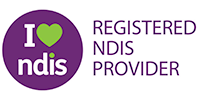The National Disability Insurance Scheme (NDIS) has introduced a transformative approach to supporting Australians living with disability. It puts participants at the centre of their plans and provides the freedom to choose supports tailored to their individual goals. However, this system can be complex and overwhelming at times. This is where the expertise of a support coordinator becomes invaluable.
While many coordinators perform their roles with diligence, only a few truly stand out as exceptional. Great NDIS support coordinators go beyond basic duties. They empower participants to understand their options, build confidence, and make meaningful decisions.
In this blog, we examine what distinguishes these professionals, particularly in the context of contemporary needs, professional expectations, and the evolving NDIS landscape.
The Foundation: Person-Centred Practice
Great support coordinators start with a deep commitment to person-centred practice. This involves more than simply following procedures or completing administrative tasks; it also requires effective communication and collaboration. It requires taking the time to listen, understand, and genuinely care about the participant’s aspirations.
A person-centred coordinator prioritises individual goals over generic solutions. They assess each situation uniquely and create tailored strategies that reflect the participant’s personal, emotional, and practical priorities.
Participants supported by NDIS support coordinators in Adelaide often benefit from this human-first approach, where the focus remains firmly on their life journey, not just on service delivery.
Mastering the NDIS System
The NDIS is a sophisticated framework involving multiple funding categories, provider relationships, and review processes. For participants unfamiliar with these elements, navigating the system without guidance can lead to under-utilisation of supports or missed opportunities.
Great support coordinators possess a strong understanding of how the NDIS operates and are adept at interpreting its nuances. They provide clear explanations, assist in maximising the participant’s plan, and help identify services that align with both goals and funding availability. Their ability to simplify the technical aspects of NDIS builds confidence and enables better decision-making.
Professionals trained through reputable networks such as MLMW demonstrate a heightened capability to translate policy into practical support outcomes. This type of training equips coordinators with real-world knowledge and empathy-driven techniques that improve the quality of participant interactions.
A Strong Local Network and Informed Recommendations
While the NDIS is a national scheme, its successful implementation often relies on local service delivery. Coordinators with a strong understanding of the service landscape within their region can offer more relevant, timely, and effective referrals.
Outstanding coordinators stay informed about service provider reputations, staff turnover, availability, and specialised offerings. They use this insight to guide participants toward reliable providers, avoiding delays or substandard support. This ability is a defining trait of NDIS support coordinators that participants consistently rate highly.
The use of tools and frameworks provided by organisations like MLMW further strengthens a coordinator’s knowledge of the local and regional market. This ensures participants are connected to services that best meet their unique requirements.
Proactive Problem Solving
The support journey is rarely linear. There may be times when services are delayed, funding is insufficient, or personal circumstances change suddenly. In such moments, great support coordinators demonstrate proactive problem-solving abilities.
They do not wait for issues to escalate; instead, they intervene early to prevent disruption. Whether it involves coordinating with providers, requesting plan reviews, or addressing administrative delays, these coordinators handle problems with poise and persistence.
Furthermore, they act as advocates, ensuring the participant’s rights are upheld and their voice remains central to all decisions. The combination of assertiveness and professional tact is what sets apart trusted NDIS support coordinators in Adelaide that residents seek for long-term support.
Transparent and Clear Communication
Communication is one of the most critical components of effective support coordination. Participants need to feel informed, understood, and respected. Great coordinators are excellent communicators who make information accessible and actionable.
They avoid unnecessary jargon and instead use language that empowers participants to understand their plans and responsibilities. They respond promptly to calls and messages, provide regular updates, and ensure that the participant is actively involved in every step of the support process.
This consistency builds trust and clarity, which are essential to successful outcomes. Coordinators trained under structured professional programs, such as MLMW, often demonstrate superior communication frameworks, which significantly enhance the participant experience.
Cultural Respect and Adaptability
A hallmark of a great support coordinator is the ability to adapt their approach according to individual values and preferences. They understand that each participant is unique in their approach to communication, information reception, and decision-making.
Rather than taking a one-size-fits-all approach, exceptional coordinators customise their engagement strategies to suit the individual. They are patient, inclusive, and conscious of the participant’s lifestyle, support needs, and lived experience.
Respect and adaptability foster stronger relationships and more favorable outcomes. They help foster an environment where participants feel safe to express themselves and confident in their choices.
Collaboration Across Support Networks
Support coordination often involves working with multiple stakeholders, including allied health professionals, family members, service providers, and government agencies. A great support coordinator serves as a central link in this network, ensuring all parties work together cohesively.
They facilitate effective communication between parties, maintain documentation, and ensure accountability across all services involved. Their leadership in this collaborative process ensures the participant’s plan runs smoothly and remains aligned with their evolving goals.
NDIS support coordinators in Adelaide networks who can foster these collaborations play a pivotal role in maintaining service consistency and achieving positive participant outcomes.
Commitment to Continuous Professional Development
The NDIS landscape is continuously evolving. Policy changes, funding structures, and best practices are regularly updated to ensure ongoing effectiveness. Great coordinators stay ahead of these developments through ongoing professional development.
They participate in industry training, attend NDIS webinars, engage in peer learning forums, and update their skills based on feedback and performance reviews. This ensures that their knowledge remains current and that participants benefit from the latest strategies and standards.
Working with coordinators who are part of development-focused organisations reflects a proactive attitude toward growth, which in turn translates to better service for participants.
Accountability and Ethical Standards
A strong ethical foundation is vital for any professional working in the NDIS sector. Great support coordinators operate with integrity, transparency, and accountability. They clearly define roles and expectations from the outset, ensuring that participants understand their rights and responsibilities.
They take ownership of their work, follow up on commitments, and professionally handle complaints or feedback. When an error occurs, they address it with honesty and take prompt steps to correct it.
This level of accountability not only protects the participant’s interests but also upholds the reputation of the broader support system.
Real Participant Impact
Behind every great support coordinator is a trail of meaningful participant progress. Whether it is helping someone build life skills, facilitating community access, arranging critical health supports, or enabling employment opportunities, the value of excellent coordination is seen in real-life outcomes.
Participants frequently share stories of how their coordinator helped them overcome barriers, gain independence, or feel genuinely understood for the first time. These stories reflect the significant emotional and practical role that support coordinators can play.
In particular, NDIS support coordinators in Adelaide who consistently embody these qualities report higher participant engagement, satisfaction, and success in plan outcomes.
Identifying the Right Coordinator
When seeking a support coordinator, participants and families should look for the following traits:
- Proven understanding of the NDIS and its application
- Strong interpersonal and communication skills
- Reliable local service knowledge
- Demonstrated experience in collaborative planning
- Commitment to ethical practices and accountability
- Flexibility and respect for individual preferences
- Active involvement in ongoing professional development
Choosing a coordinator with these qualities can significantly enhance the quality and efficiency of NDIS plan implementation.
Conclusion
Support coordinators play a critical role in helping participants navigate the complexities of the NDIS. However, what sets the truly great ones apart is their dedication to outcomes, person-centered care, and ethical service delivery. Their knowledge, empathy, and strategic approach can turn a participant’s NDIS experience from confusing and stressful to empowering and impactful.
Whether it involves simplifying complex funding structures, coordinating timely services, or simply being a reliable point of contact, the impact of a great coordinator is both practical and deeply personal.
Participants benefit most from coordinators who not only understand the system but also genuinely care about making a meaningful difference. In this regard, the best NDIS support coordinators in Adelaide are those who align their values, skills, and practices to the success of those they support.
By identifying and working with professionals who exhibit these qualities, participants can access a higher standard of care and unlock the full potential of their NDIS plans. MLMW offers reliable help through experienced NDIS support coordinators who guide participants in managing their plans.



